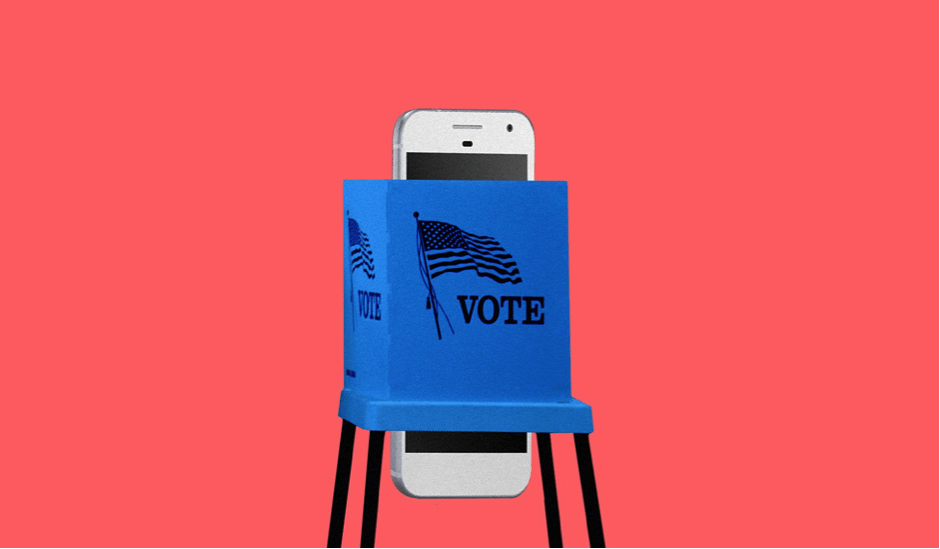By Justin Pelletier
In 2016, the Russian government attacked the U.S. democracy by launching cyberattacks to disrupt the electoral process targeting the people, institutions, and venders that administered the United States presidential election. Following concerns about future cyberattacks and tampering in the upcoming 2020 presidential election, the DNC issued new rules in August 2018 to prevent against cyberattacks and maximize voter turnout while protecting the U.S. democracy. Special counsel Robert Mueller and former Director of National Intelligence Dan Coats warned that the people who attacked the U.S. democracy in 2016 would be back in 2020. Part of the DNC’s new rules required states to expand voting opportunities, such as requiring caucuses to have an absentee option for voters who could not attend the regular caucus. These rules encouraged seven states that used caucuses in 2016 to hold primaries in 2020. However, Iowa has an extremely proud history of holding the first in the nation caucus and plans to keep it that way.
In a caucus, people are required to show up at a designated time and place and group themselves by which candidate they prefer. In a primary, people go to their designated voting district, cast their vote, and leave. A caucus is much more time consuming and poses a much higher barrier for a person to place their vote who might not be able to get time off from work, get stuck in traffic, or because of a disability cannot physically make it to a caucus. To comply with the new DNC rules, Iowa announced earlier this year a proposal to hold virtual-caucuses. A virtual-caucus is meant to simulate the in-person experience of being at a caucus and allows for Iowa Democrats to caucus virtually by telephone for six days leading up to the caucus on February 3rd, 2020. The Iowa Democratic Party chose phones because they thought they were the most accessible, inclusive, and secure type of technology that would expand voter participation.
Even though Iowa is meeting its goal of increasing voter access and participation, the DNC, state parties, and voters remain deeply concerned about the security of virtual-caucuses in the process of verifying voters and available technology to ensure no vote tampering. Iowa claimed that it would require virtual voters to confirm two manners of identification authentication, such as the last four digits of a social security number or a driver’s license prior to registering. Additionally, Iowa would begin testing its systems with outside groups and the DNC to ensure their systems are technologically secure prior to the start of the Iowa Democratic caucuses.
In September 2019, the Democratic National Committee’s Rules and Bylaws Committee voted to disallow Iowa’s plan to hold virtual-caucuses, noting that the vote-by-phone method failed to meet security standards set to avoid hacking or tampering. Even though the goal of Iowa’s plan was to make caucuses more inclusive and increase every eligible voter’s access to the ballot, the proposal comes with extremely high cybersecurity risks. Security experts admit that today’s technology is too vulnerable and those outside hacking efforts would easily take advantage of exposed and technologically weak virtual-caucuses. The 2016 cyberattacks should serve as a lesson from the past to the States in exercising caution to protect the American vote. Since the Iowa caucuses are less than four months away, Iowa’s time has run out in their attempt to expand voter participation in their 2020 caucuses. In addition, given the high stakes in the upcoming 2020 U.S. Presidential Election, Iowa should put democracy first and not risk implementing virtual-caucuses subject to cyberattacks if the level of technology cannot adequately shield against the outside hacking efforts of foreign nations.
In an effort to secure the upcoming Iowa caucuses while expanding voter opportunity and participation, Iowa is working hard with the assistance of the Department of Homeland Security and the Federal Bureau of Investigation to make a safer process. However, this goal is bigger than any one state’s problem, and the DNC should lead the effort following the upcoming 2020 election to ensure the proper amount of time coupled with the right technology to achieve these goals by the 2024 general election. We must learn from the 2016 lessons and treat cybersecurity as a real threat to the integrity of our elections. Leaders of our country, not just the states, must take immediate action against election security threats to protect the American vote.
Student Bio: Justin Pelletier is a second-year law student at Suffolk University Law School, concentrating in Business Financial Services. He is a staffer on the Journal of High Technology Law. Justin received a Bachelor of Arts Degree in Sociology and Justice Studies from the University of New Hampshire.
Disclaimer: The views expressed in this blog are the views of the author alone and do not represent the views of JHTL or Suffolk University Law School.

